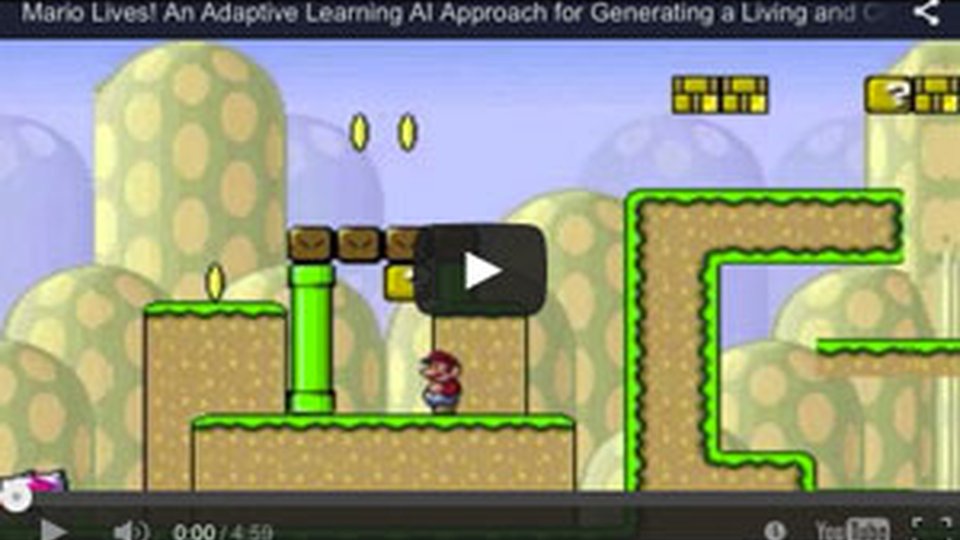News
Thats One Small Step For Mario One Giant Leap For Artificial Intelligence

January 28, 2015
TAGS: Mario Lives!, video game, arcade video game, coin-op amusements, University of Tübingen, Association for the Advancement of Artificial Intelligence, Nintendo, Donkey Kong, AAAI, artificial intelligence |
TÜBINGEN, Germany -- Mario lives! A group of computer researchers at Germany's University of Tübingen have applied sophisticated principles of artificial intelligence to the videogame icon. According to the researchers, their work allows Mario to learn from his environments, respond to questions in English or German, and react to emotional states. That is to say, Mario is close to "self aware" and learns the game, along with the player.
Although an experimental exercise, the same principles used for the self-aware Mario could be applied to future videogames that come to market. Officially called, "Mario Lives! An Adaptive Learning AI Approach for Generating a Living and Conversing Mario Agent," the brainy upgrade of the videogame classic was conducted as part of the annual competition hosted by the Association for the Advancement of Artificial Intelligence, which draws computer scientists from around the world.
First introduced in Nintendo's arcade game Donkey Kong in the early 1980s, Mario became the Nintendo mascot, as well as one of the most recognizable of all videogame characters thanks to many appearances in other arcade games, along with home console and handheld content.
Founded in 1979, the Association for the Advancement of Artificial Intelligence (formerly the American Association for Artificial Intelligence) is a scientific society devoted to advancing the scientific understanding of the mechanisms underlying thought and intelligent behavior and their embodiment in machines. AAAI aims to promote research in, and responsible use of, artificial intelligence.
 ChatGPT
ChatGPT Grok
Grok Perplexity
Perplexity Claude
Claude






